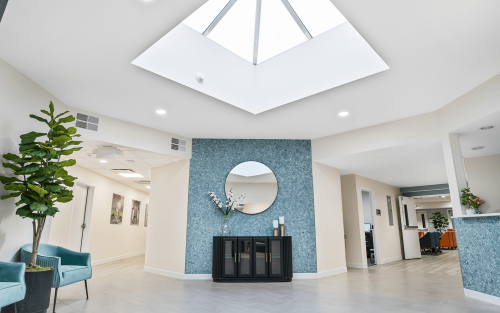

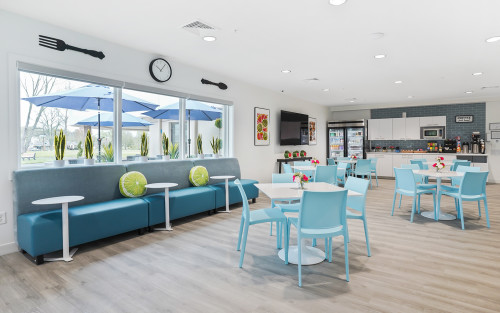
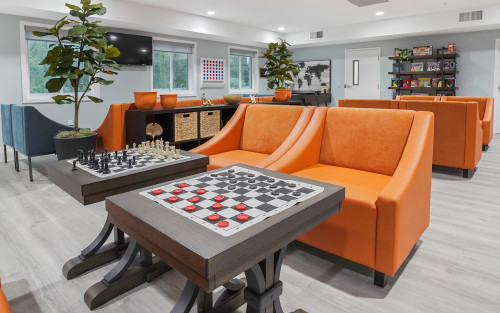
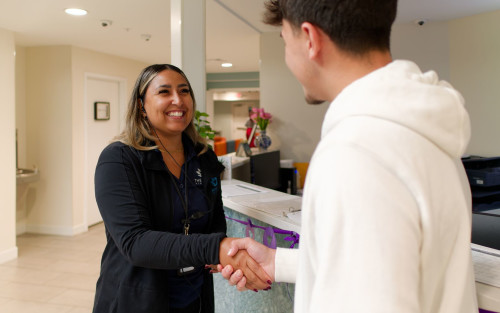




The Haven Detox - New Jersey
Verified Center
This provider's information has been quality-checked by Recovery.com's Research Team for accuracy and completeness, including center verification through appropriate third-party organizations.
Treatment Focus
This center treats substance use disorders and co-occurring mental health conditions. Your treatment plan addresses each condition at once with personalized, compassionate care for comprehensive healing.
Primary Level of Care
Offering intensive care with 24/7 monitoring, residential treatment is typically 30 days and can cover multiple levels of care. Length can range from 14 to 90 days typically.
Treatment Focus
This center treats substance use disorders and co-occurring mental health conditions. Your treatment plan addresses each condition at once with personalized, compassionate care for comprehensive healing.
Primary Level of Care
Offering intensive care with 24/7 monitoring, residential treatment is typically 30 days and can cover multiple levels of care. Length can range from 14 to 90 days typically.
Provider's Policy
Confirm your policy covers our expert care, and get the best possible drug addiction treatment through your insurance by verifying benefits. Help, healing, and recovery are only a click away.
The Haven Detox - New Jersey
The Haven Detox - New Jersey
About The Haven Detox - New Jersey
The Haven Detox - New Jersey provides a path for clients to triumph over addiction. The team has created a welcoming space for clients to feel better from day one. They specialize in treating a wide range of addictions, from alcohol and opioids to cocaine and beyond. Recognizing that everyone's journey is uniquely their own, they tailor their care to fit each client’s needs. The Haven starts with a gentle detox program and offers residential care for those who need additional support. Their experienced professionals, some of which have bilingual capabilities, use proven therapies to help individuals uncover the root of their addiction and build a strong foundation for lasting recovery.
Find a Safe Space for Healing and Growth
Their team believes in treating the whole person, not just the addiction. This looks like taking a deep dive into the root causes of substance use while nurturing the mind, body, and spirit. The Haven Detox's skilled therapists use a blend of personal reflection and evidence-based practices like cognitive behavioral therapy (CBT) and motivational interviewing. These therapies are proven to help rewire thought patterns and boost internal motivation for change. Recognizing that healing takes many forms, they also offer holistic therapies like meditation and yoga, giving clients a full toolkit to manage stress and find inner peace. The staff is the heartbeat of The Haven Detox; from the compassionate nurses who guide clients through detox to the experienced counselors who become trusted confidants, every team member is dedicated to creating a supportive, judgment-free zone. At The Haven Detox, clients find a community rooting for their success every step of the way.
Receive Emotional Support and Prioritize Physical Wellness
The Haven Detox - New Jersey not only focuses on detoxification but also provides a holistic recovery experience that addresses emotions, thoughts, and behaviors, particularly for individuals navigating the complexities of addiction. A standout feature at The Haven Detox is their Haven for Heroes program, which offers specialized care for veterans, military members, and first responders. This program recognizes the distinct challenges faced by these individuals, including trauma and mental health struggles, and delivers therapies to help them regain control again.
Find Comfort and Build Connections
The Haven Detox - New Jersey offers a relaxing environment with thoughtful touches that prioritize comfort for all clients. Each bedroom has plush, queen-sized beds, modern furniture, and flat-screen TVs, creating a cozy atmosphere for healing. After leaving treatment, clients can receive case management, sober housing support, and access to support groups. But what truly sets The Haven apart is the sense of connection and care clients feel while in treatment. Staff are deeply committed to crafting recovery plans and walking alongside clients on the path to success.

Highlights from the Center
Highlights
These highlights are provided by and paid for by the center.
Holistic Approach
Medically Assisted Detox
On-site Medical Detox
Addiction Recovery
Center Overview
Treatment Focus
This center treats substance use disorders and co-occurring mental health conditions. Your treatment plan addresses each condition at once with personalized, compassionate care for comprehensive healing.
Joint Commission Accredited
The Joint Commission accreditation is a voluntary, objective process that evaluates and accredits healthcare organizations (like treatment centers) based on performance standards designed to improve quality and safety for patients. To be accredited means the treatment center has been found to meet the Commission's standards for quality and safety in patient care.
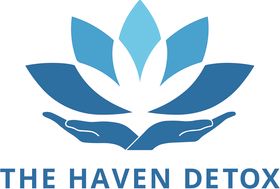
The Haven Detox - New Jersey
Insurance Accepted


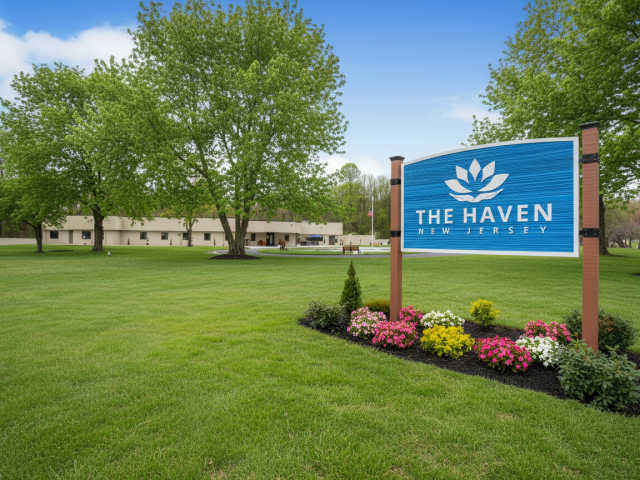
Recovery.com Verified Listing
Recovery.com verified that the name, location, contact information and license to operate for this treatment provider are valid and up-to-date.

Joint Commission Accredited

Licensed by New Jersey
Recovery.com is an independent, third-party mental health resource. Verification does not imply endorsement and does not guarantee the quality of treatment services.
Meet Your Care Team
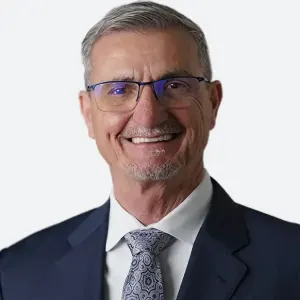
Donald Martinelli
Regional Executive Director - Clinical
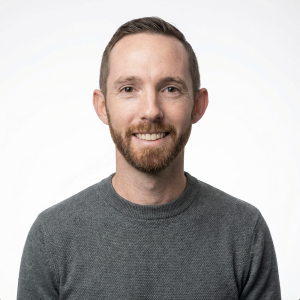
Lucas Coyle
Director of Operations - Clinical
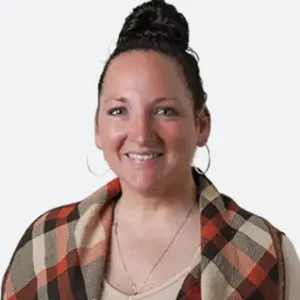
Cynthia Menzoni
Lead Provider - Medical
APRN
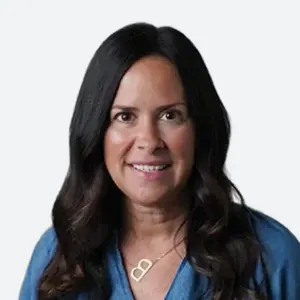
Barbara Basile
Psychiatric Nurse Practitioner - Medical
APRN
Your Care Options
Specializations
Meditation & Mindfulness
A practiced state of mind that brings patients to the present. It allows them to become fully aware of themselves, their feelings, and the present moment.
Alcohol
Using alcohol as a coping mechanism, or drinking excessively throughout the week, signals an alcohol use disorder.
Art Therapy
Visual art invites patients to examine the emotions within their work, focusing on the process of creativity and its gentle therapeutic power.
Co-Occurring Disorders
A person with multiple mental health diagnoses, such as addiction and depression, has co-occurring disorders also called dual diagnosis.
Drug Addiction
Drug addiction is the excessive and repetitive use of substances, despite harmful consequences to a person's life, health, and relationships.
Medication-Assisted Treatment
Combined with behavioral therapy, prescribed medications can enhance treatment by relieving withdrawal symptoms and focus patients on their recovery.
Relapse Prevention Counseling
Relapse prevention counselors teach patients to recognize the signs of relapse and reduce their risk.
Residential
In a residential rehab program, patients live onsite, with access to daily treatment and 24-hour care. An average stay is 30-90 days.
Who We Treat
Men and Women
Men and women attend treatment for addiction in a co-ed setting, going to therapy groups together to share experiences, struggles, and successes.
Treatment Services
Detox
Detox fully and safely removes toxic substances from the body, allowing the next steps in treatment to begin with a clean slate.
Residential
In a residential rehab program, patients live onsite, with access to daily treatment and 24-hour care. An average stay is 30-90 days.
Approaches
Evidence-Based
A combination of scientifically rooted therapies and treatments make up evidence-based care, defined by their measured and proven results.
Medical
Medical addiction treatment uses approved medications to manage withdrawals and cravings, and to treat contributing mental health conditions.
Personalized Treatment
The specific needs, histories, and conditions of individual patients receive personalized, highly relevant care throughout their recovery journey.
Twelve Step
Incorporating spirituality, community, and responsibility, 12-Step philosophies prioritize the guidance of a Higher Power and a continuation of 12-Step practices.
Therapies
1-on-1 Counseling
Patient and therapist meet 1-on-1 to work through difficult emotions and behavioral challenges in a personal, private setting.
Meditation & Mindfulness
A practiced state of mind that brings patients to the present. It allows them to become fully aware of themselves, their feelings, and the present moment.
Trauma-Specific Therapy
This form of talk therapy addresses any childhood trauma at the root of a patient's current diagnosis.
Art Therapy
Visual art invites patients to examine the emotions within their work, focusing on the process of creativity and its gentle therapeutic power.
Experiential Therapy
With this approach, patients heal by doing. Therapists help patients process difficult emotions to speak, using guided activities like art or dance.
Medication-Assisted Treatment
Combined with behavioral therapy, prescribed medications can enhance treatment by relieving withdrawal symptoms and focus patients on their recovery.
Mindfulness-Based Cognitive Therapy
MBCT combines mindfulness practices—like meditation—with cognitive therapy techniques to help patients work through negative thought patterns.
Conditions We Treat
Schizophrenia
Schizophrenia is a serious mental health condition that causes hallucinations, delusions, and disordered thinking.
Grief and Loss
Grief is a natural reaction to loss, but severe grief can interfere with your ability to function. You can get treatment for this condition.
Personality Disorders
Personality disorders destabilize the way a person thinks, feels, and behaves. If untreated, they can undermine relationships and lead to severe distress.
Anger
Although anger itself isn't a disorder, it can get out of hand. If this feeling interferes with your relationships and daily functioning, treatment can help.
Anxiety
Anxiety is a common mental health condition that can include excessive worry, panic attacks, physical tension, and increased blood pressure.
Bipolar
This mental health condition is characterized by extreme mood swings between depression, mania, and remission.
Depression
Symptoms of depression may include fatigue, a sense of numbness, and loss of interest in activities. This condition can range from mild to severe.
Obsessive Compulsive Disorder (OCD)
OCD is characterized by intrusive and distressing thoughts that drive repetitive behaviors. This pattern disrupts daily life and relationships.
Post Traumatic Stress Disorder
PTSD is a long-term mental health issue caused by a disturbing event or events. Symptoms include anxiety, dissociation, flashbacks, and intrusive thoughts.
Substances We Treat
Alcohol
Using alcohol as a coping mechanism, or drinking excessively throughout the week, signals an alcohol use disorder.
Benzodiazepines
Benzodiazepines are prescribed to treat anxiety and sleep issues. They are highly habit forming, and their abuse can cause mood changes and poor judgement.
Co-Occurring Disorders
A person with multiple mental health diagnoses, such as addiction and depression, has co-occurring disorders also called dual diagnosis.
Cocaine
Cocaine is a stimulant with euphoric effects. Agitation, muscle ticks, psychosis, and heart issues are common symptoms of cocaine abuse.
Drug Addiction
Drug addiction is the excessive and repetitive use of substances, despite harmful consequences to a person's life, health, and relationships.
Ecstasy
Ecstasy is a stimulant that causes intense euphoria and heightened awareness. Abuse of this drug can trigger depression, insomnia, and memory problems.
Heroin
Heroin is a highly addictive and illegal opioid. It can cause insomnia, collapsed veins, heart issues, and additional mental health issues.
Methamphetamine
Methamphetamine, or meth, increases energy, agitation, and paranoia. Long-term use can result in severe physical and mental health issues.
Languages
Aftercare
Care Designed for Your Needs
Personal Amenities
Amenities
Special Considerations
Activities

Learn More About the Center
Mental Health & Addiction Treatment Options
Every level of care is available in one trusted place, from medically supervised detox and residential treatment to outpatient programs that support continued progress.
Medical Detox: The First Step To Feeling Better
Medically supervised detox ensures withdrawal is managed safely, with expert support to ease discomfort and emotional overwhelm.
New Jersey Addiction and Mental Health Resources
Private treatment centers deliver rapid admission, around-the-clock medical monitoring for safer withdrawal, and integrated behavioral health care to address co-occurring disorders.
The Best Addiction & Mental Health Treatment Center in New Jersey
The Haven Detox – New Jersey feels more like a peaceful retreat than a medical building. It’s a quiet, serene space purposefully designed to help you feel calm and supported.
What people are saying
Treatment
4.9
Accommodations
4.9
Food & Nutrition
4.7
Value
4.9
Tony
Reviewed 05/07/25
Review from Rehabs.com
Mark
Reviewed 03/23/25
Review from Rehabs.com
Stephen
Reviewed 03/05/25
Review from Rehabs.com
Ya boy P.nut/ thank you / u know who u r.
Reviewed 02/22/25
Review from Rehabs.com
Matt
Reviewed 05/02/25
Review from Rehabs.com





